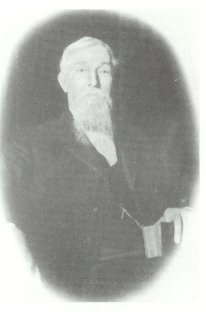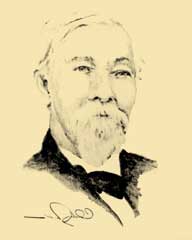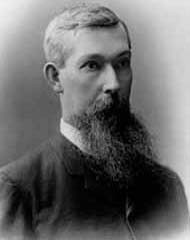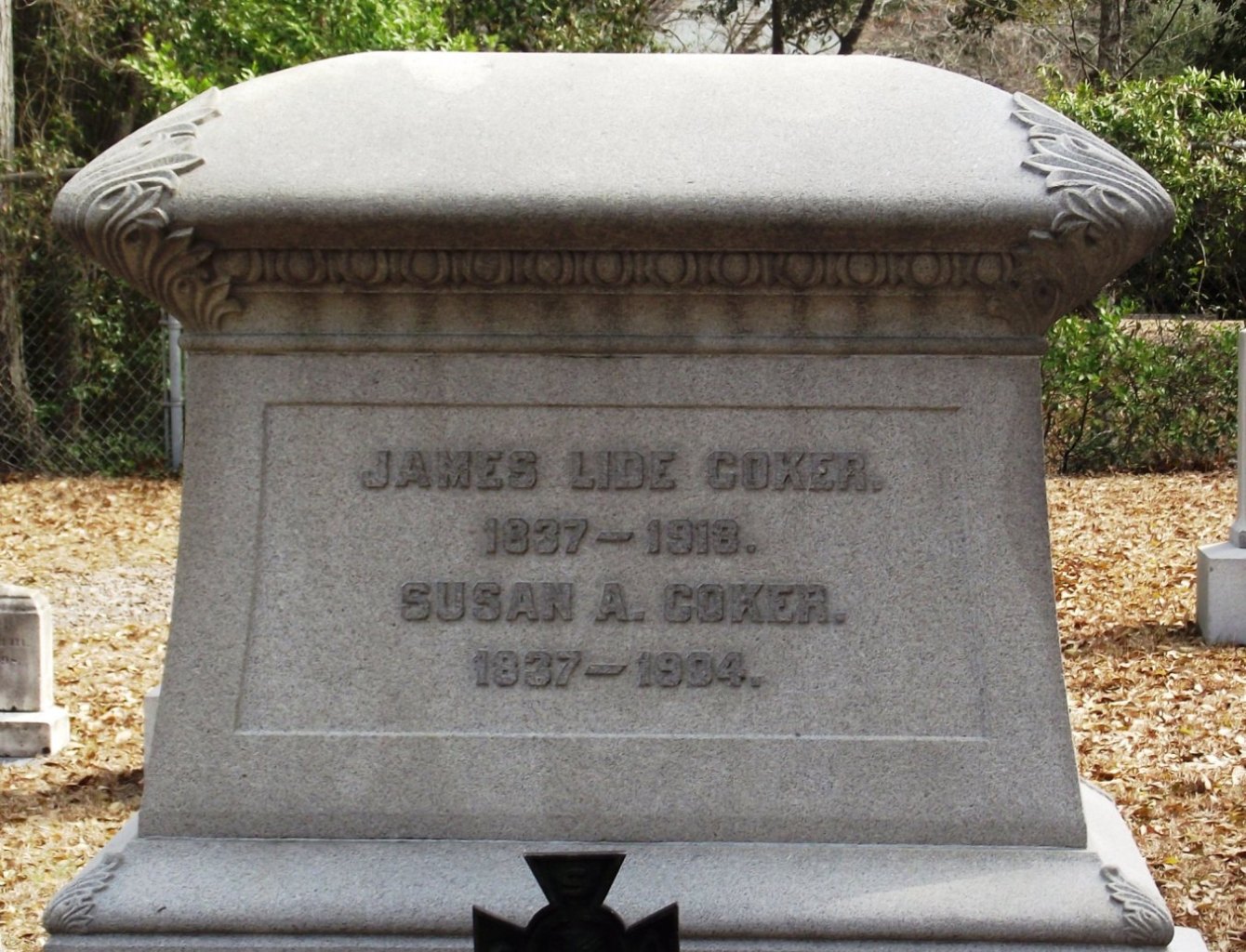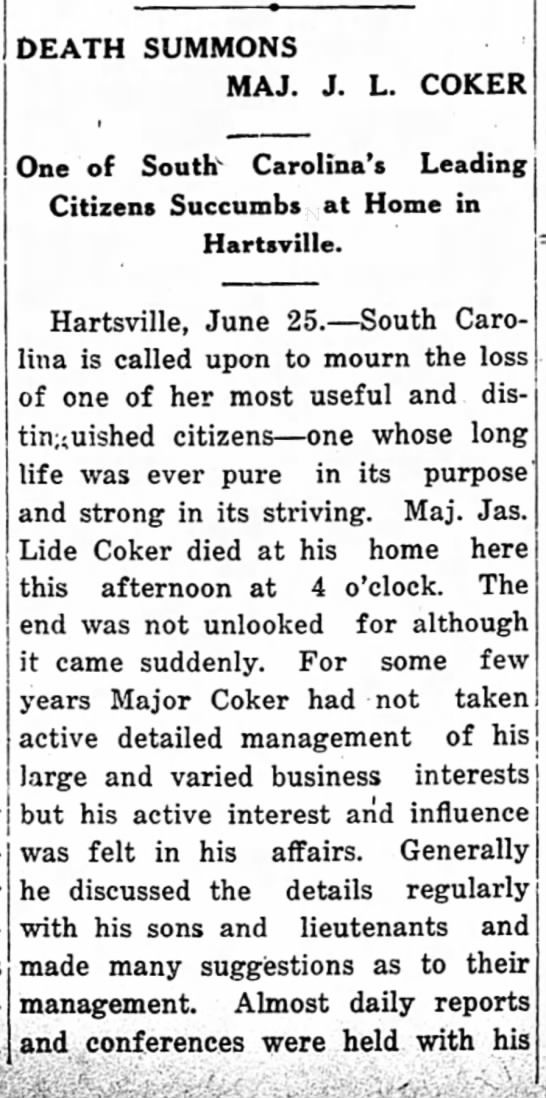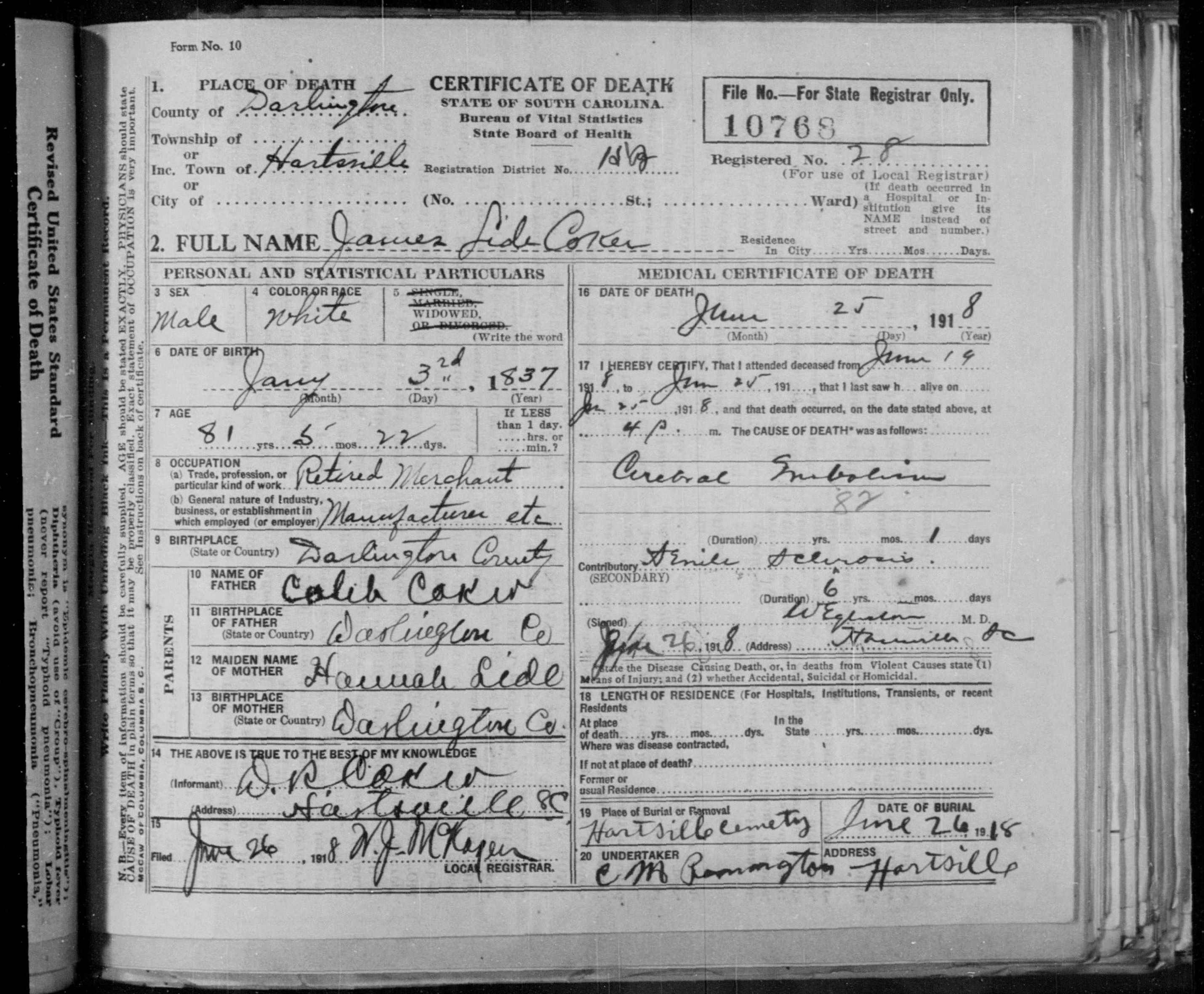paraphrased from www.myetv.org...
James Lide Coker, widely known as "the Major", was the son of Caleb and Hannah Lide Coker. He was educated at The Citadel, and prior to starting his career in agriculture, he attended Harvard for a year to study the scientific principles of farming.
He was engaged in farming in Hartsville when the Civil War began, and he answered the call with his infantry company. In October 1863, he was wounded at the battle of Chickamauga, and after a time as a prisoner of war, returned home to spend the rest of his life with a shattered hip.
He entered into the plantation economy of that day with the stubborn conviction that the South's future hinged on the introduction of scientific principles to farming and on the development of industry.
By the end of 1864, he was getting around on crutches and making plans for planting a cotton crop the following spring. In March of 1865, he set out with a large box of food supplies for the Confederate forces in Richmond. On the return trip to Hartsville, he learned that Sherman's army was in the Pee Dee, so he carefully made his way back home. However, Sherman and his men had already destroyed the Coker farm. The stock had been driven away or butchered, wagons and carts had been hauled away, all cotton bales had been burned, and everything of value in their home had been taken away. When the war ended in April 1865, the Coker family began rebuilding. Caleb Coker had fought for and kept the store in Society Hill. In Hartsville, although Sherman's army had left no work stock, Major Coker had cotton seed and seed corn, which he planted with the use of an old sore-back mule and a pair of oxen borrowed from an uncle. He planted 60 acres of cotton and 40 acres of corn, which yielded 25 bales of cotton and 300 bushels of corn. At the prevailing prices, 25 bales of cotton brought $1,700.
In the summer and fall of 1865, with his father as a partner, Coker converted the old plantation commissary into a store. He later wrote that it was his father's credit and good name that secured goods for the business. Caleb Coker's death in 1869 brought about changes. The Major's son, William, took charge of the farming operation at Society Hill and joined his father's brother, Lewis, as a partner in the store there. At Hartsville, Major Coker farmed with success through careful, thorough management. His store, although still modest, was not disappointing. Through other business dealings, by 1881, he became the largest stockholder and first president of a bank in Darlington, the only bank in the area.
In 1883, he organized Darlington Manufacturing Company and was the majority stockholder and president.
In 1886, he focused his interests in Hartsville. His store was successful, and the railroad he had built promised to revolutionize business in the town. In 1890, long story short, Major Coker and his eldest son, James, purchased their own papermaking equipment and formed Carolina Fiber Company. He later formed Southern Novelty Company, which later became Sonoco Products Company, the world's leading supplier of paper cones, used by the textile industry for storing and transporting yarn. He remained president of Sonoco until his death June 25, 1918.
He also established Welsh Neck High School, which later became Coker College. His store became Coker's Department Store, which served Hartsville and surrounding communities for over 100 years.
Coker once served as the Mayor of Hartsville and as a member of the state House of Representatives, where he introduced the state's first legislation seeking free public schools.
Major Coker married Sue Armstrong Stout in 1860, and they were the parents of nine children, six of whom survived childhood: Margaret, James L., Jr., David R., William C., Jennie, Charles Westfield, and Susan. He was inducted into the South Carolina Business Hall of Fame in 1986.
paraphrased from www.myetv.org...
James Lide Coker, widely known as "the Major", was the son of Caleb and Hannah Lide Coker. He was educated at The Citadel, and prior to starting his career in agriculture, he attended Harvard for a year to study the scientific principles of farming.
He was engaged in farming in Hartsville when the Civil War began, and he answered the call with his infantry company. In October 1863, he was wounded at the battle of Chickamauga, and after a time as a prisoner of war, returned home to spend the rest of his life with a shattered hip.
He entered into the plantation economy of that day with the stubborn conviction that the South's future hinged on the introduction of scientific principles to farming and on the development of industry.
By the end of 1864, he was getting around on crutches and making plans for planting a cotton crop the following spring. In March of 1865, he set out with a large box of food supplies for the Confederate forces in Richmond. On the return trip to Hartsville, he learned that Sherman's army was in the Pee Dee, so he carefully made his way back home. However, Sherman and his men had already destroyed the Coker farm. The stock had been driven away or butchered, wagons and carts had been hauled away, all cotton bales had been burned, and everything of value in their home had been taken away. When the war ended in April 1865, the Coker family began rebuilding. Caleb Coker had fought for and kept the store in Society Hill. In Hartsville, although Sherman's army had left no work stock, Major Coker had cotton seed and seed corn, which he planted with the use of an old sore-back mule and a pair of oxen borrowed from an uncle. He planted 60 acres of cotton and 40 acres of corn, which yielded 25 bales of cotton and 300 bushels of corn. At the prevailing prices, 25 bales of cotton brought $1,700.
In the summer and fall of 1865, with his father as a partner, Coker converted the old plantation commissary into a store. He later wrote that it was his father's credit and good name that secured goods for the business. Caleb Coker's death in 1869 brought about changes. The Major's son, William, took charge of the farming operation at Society Hill and joined his father's brother, Lewis, as a partner in the store there. At Hartsville, Major Coker farmed with success through careful, thorough management. His store, although still modest, was not disappointing. Through other business dealings, by 1881, he became the largest stockholder and first president of a bank in Darlington, the only bank in the area.
In 1883, he organized Darlington Manufacturing Company and was the majority stockholder and president.
In 1886, he focused his interests in Hartsville. His store was successful, and the railroad he had built promised to revolutionize business in the town. In 1890, long story short, Major Coker and his eldest son, James, purchased their own papermaking equipment and formed Carolina Fiber Company. He later formed Southern Novelty Company, which later became Sonoco Products Company, the world's leading supplier of paper cones, used by the textile industry for storing and transporting yarn. He remained president of Sonoco until his death June 25, 1918.
He also established Welsh Neck High School, which later became Coker College. His store became Coker's Department Store, which served Hartsville and surrounding communities for over 100 years.
Coker once served as the Mayor of Hartsville and as a member of the state House of Representatives, where he introduced the state's first legislation seeking free public schools.
Major Coker married Sue Armstrong Stout in 1860, and they were the parents of nine children, six of whom survived childhood: Margaret, James L., Jr., David R., William C., Jennie, Charles Westfield, and Susan. He was inducted into the South Carolina Business Hall of Fame in 1986.
Family Members
Sponsored by Ancestry
Advertisement
Advertisement
